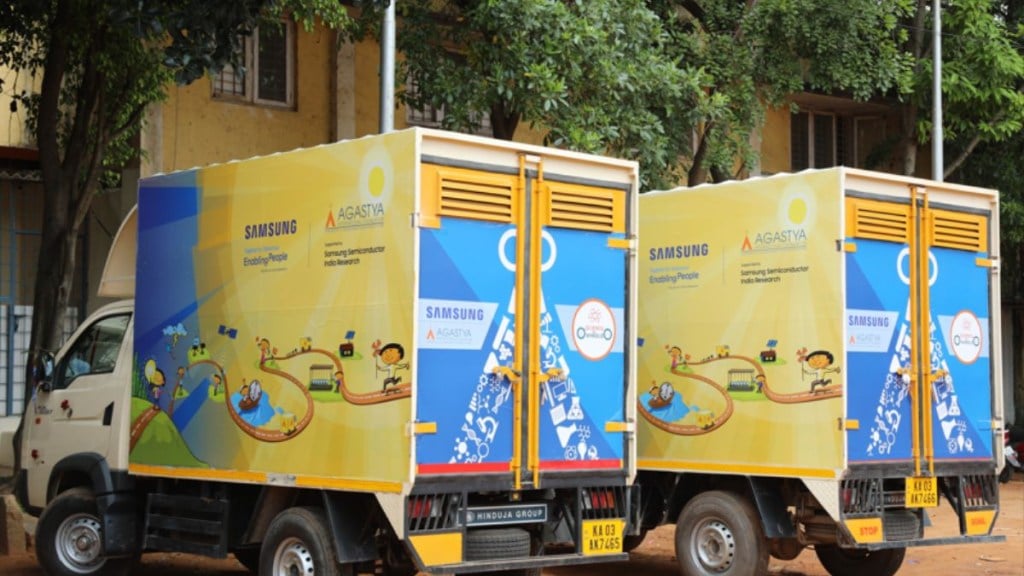Samsung Semiconductor India Research (SSIR), a global Research and Development Center for Samsung Semiconductors, inaugurated ‘three Mobile Science Labs, two Science Centers and two Mini-Innovation Hubs’ in association with Agastya International Foundation, a non-profit organisation based in Bengaluru. The initiative aligns with Samsung’s commitment to empower STEM education, enable children in remote parts of the country to become catalysts of change and future innovation, while nurturing a passion for science and innovation amongst students from all backgrounds, an official release said.
Through this association, Samsung aims to empower young minds, improve the quality of education, and foster a nationwide culture of scientific curiosity and innovation. The three newly inaugurated Mobile Science Labs (MSL) are mobile facilities equipped with science models and experiments that travel to under-privileged schools in remote areas. Each MSL reaches to the doorstep of remote schools with 100 plus hands-on science models covering a wide range of topics in Physics, Chemistry and Biology for students from grades five to nine. Students engage in hands-on learning by exploring, experimenting, and experiencing scientific concepts.
The two Science Centers, on the other hand, house over 150 science experiments and models related to chemistry, physics, biology, ecology, and astronomy. They will serve as a resource center welcoming government school teachers and children to interact with these exhibits and participate in various activities. Both MSL and the Science Center will serve as a venue for teacher training, Young Instructor (YI) programs, summer camps, community visits and science fairs.
The Mobile Science Lab and Science Center programme aims to provide STEM education using an interactive and sustainable learning approach that combines practical exposure with theoretical knowledge. This initiative will establish three Mobile Science Centres in Haveri, Mysore/Hunsur, and Mangalore, along with two Science Centers in Hebbal (Bengaluru) and Hunsur (Mysore). Additionally, two Mini-Innovation Hubs will also be set up in Hebbal (Bengaluru) and Hunsur (Mysore).
These facilities will collectively benefit over 68 plus government schools, serving a total of 8,000 unique students from tribal, rural, and urban areas every year. Through this initiative, more than 30,000 students will have the opportunity to engage in experiential learning annually.
